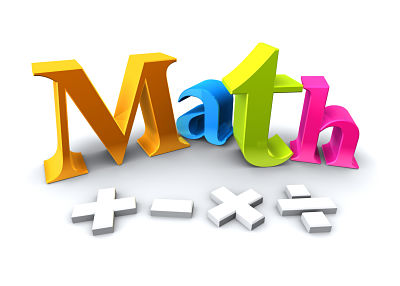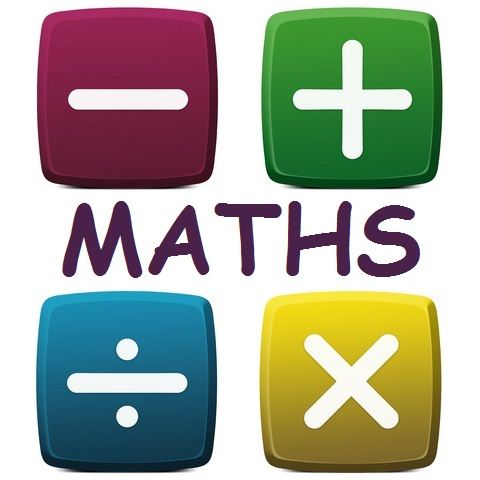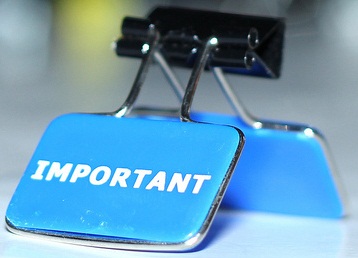Scoring Topics for CBSE Maths Class XII Board Exam
 Preparing for Maths board exam serves a dual purpose for an engineering aspirant. CBSE Class 12 board Exam syllabus for Mathematics is same as the JEE Mains syllabus and has much in common with the JEE Advanced syllabus for Mathematics too.
Preparing for Maths board exam serves a dual purpose for an engineering aspirant. CBSE Class 12 board Exam syllabus for Mathematics is same as the JEE Mains syllabus and has much in common with the JEE Advanced syllabus for Mathematics too.
So, if you prepare well for your school board exams and focus on conceptual understanding and application of fundamentals you learn, you will largely be prepared for your engineering entrance exams too. Since Class 12 board marks carry a weightage of 40% in the JEE Main merit list and the eligibility criteria for JEE Advanced calls for Top 20 percentile for the student, it becomes very important for an IIT aspirant to pay attention to their Class XII board exams. Here are all the study tips that you need to score more in Mathematics during the CBSE Class 12 board exam 2015:
Exam Format for Math Class XII Board Exam (CBSE)
In the CBSE Class XII Maths exam, you are not allowed to carry calculator inside the examination hall.
 Exam Preparation Tips
Exam Preparation Tips
-
Change your perception towards the subject: Once you fall in love with the Mathematics, it will give you an adrenaline rush to solve challenging problems it throws at you.
-
Hard work and practice: Maths is not something that you can learn by heart. No matter how many problems you learn by rote, a tiny change of value in the given problem or a twist in the statement can change its solution or the approach you need to use in the problem. Hence, the only way to score more in the subject is hard work and consistent practice. Moreover, you need to move step-by-step in Maths. You cannot skip chapters and expect to solve a complicated one. So start with the easier chapters and the difficult chapters will start to unravel themselves.
-
Question Paper is right in front of you: Most of the questions asked in the Class 12 Maths exam are either picked up directly from NCERT textbooks or are based on them. Hence, go through the solved examples carefully, read the theory and solve all the given questions carefully. Practice them a number of times until solving similar questions become second nature to you.
-
Reference books for Maths: Once you have covered the NCERT, you may solve problems in other popular Maths books like R D Sharma and R S Aggarwal. You can also use these books to understand a particular topic in greater detail.
-
Learn formulae by heart and learn its applications: It is important to remember a formula, its rules and understand how and where it should be applied. For example, a quadratic formula needs to be changed to its standard form before being used.
 To memorize the formulae, make formula sheets that are extremely useful in last day revisions. You can also make posters and put up on the walls of your study room or flash cards. To remember their rules and applications, solve as many problems as you can for the exam. At this stage, you should be solving related questions from previous year board exam question papers.
To memorize the formulae, make formula sheets that are extremely useful in last day revisions. You can also make posters and put up on the walls of your study room or flash cards. To remember their rules and applications, solve as many problems as you can for the exam. At this stage, you should be solving related questions from previous year board exam question papers.
-
Question the Solutions: In Maths questions, you are not expected to solve a problem blindly. You must know why you are using a particular method to solve a particular question and understand how to determine the formulae you should use to solve it. Note that there can be multiple ways to solve a given problem and find out which one takes the least time and is most suitable for you. This is called problem analysis which is an important skill to acquire for your future career.
-
One previous year question paper a day: At this stage, you should solve at least one full-length sample paper, mock test, guess paper or last years’ question paper every day. It will give you the much-needed practice, help you improve speed and give you crucial insight about the types of questions asked in the exam.
How to Solve Mathematics Board Exam Paper?
Step 1: In the first 15 minutes of Math exam, scan the paper and focus on questions that you can solve easily. Boost up your confidence. In case you see questions that you don’t know, don’t take too much tension. You can find a way to solve them later.
Step 2: Start with the easy questions and then move on to difficult or tricky questions.
Step 3: Read the questions very carefully. Missing just a word can change the meaning of the entire problem and will mislead you. Do not assume that the question is same as the one you saw in a previous year question paper and start solving it. Read it until you understand each word.
Step 4: If you have practiced enough, Differentiation and Integration problems can fetch you some easy scores. Hence, you must have their formulae at the fingertips. Make sure that you are applying them correctly.
Step 5: Some students prefer to do long answer questions with more marks first while some prefer to quickly get over with short answer questions and secure that much marks. Finalize an exam strategy beforehand and stick to it during the examination.
Important Maths Topics for CBSE Class 12 Board Exam
 Complete Mathematics syllabus for Class 12 Board Exam 2015 is as follows:
Complete Mathematics syllabus for Class 12 Board Exam 2015 is as follows:
Some of the easiest topics that take less time and can fetch you good scores are:
|
|
|
|
|
|
|
|
Analysis of students’ performance in the last few years in the CBSE Class XII board exam papers for Mathematics indicates that following chapters are simple but help students score well in the exam:
Chapter Name |
Marks |
|
Matrices |
8 |
|
Determinants |
5 |
|
Linear Programming |
6 |
|
Differential Equations |
8 |
|
Continuity & Differentiability |
8 |
|
Application of Derivatives |
10 |
Integrals and Probability carry a good weightage too but require more practice and memorization of formulae well. Those who understood concepts of Vectors well scored easily in this chapter as well. Overall, we can say that Maths syllabus for Class 12 is not difficult but it does require a lot of practice. Once you understand that what a concept means and how and why it is used in solving practical real-life problems, you will automatically find it interesting and be able to digest it easily. Best of Luck!
View courses by askIITians


Design classes One-on-One in your own way with Top IITians/Medical Professionals
Click Here Know More

Complete Self Study Package designed by Industry Leading Experts
Click Here Know More

Live 1-1 coding classes to unleash the Creator in your Child
Click Here Know More
